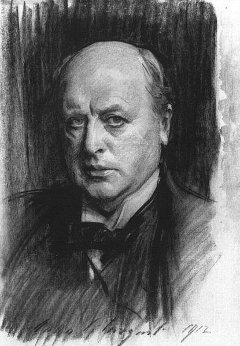
“I’m glad you like adverbs,” wrote Henry James to a correspondent. “I adore them; they are the only qualifications I really much respect, and I agree with the fine author of your quotations in saying — or in thinking — that the sense for them is the literary sense. None other is much worth speaking of.”
As Somerset Maugham prepared to write Of Human Bondage, “I began with the impossible aim of using no adjectives at all. I thought that if you could find the exact term a qualifying epithet could be dispensed with. As I saw it in my mind’s eye my book would have the appearance of an immensely long telegram in which for economy’s sake you had left out every word that was not necessary to make the sense clear. I have not read it since I corrected the proofs and do not know how near I came to doing what I tried. My impression is that it is written at least more naturally than anything I had written before.”
Edgar Allan Poe bewailed the passing of the dash. “The Byronic poets were all dash,” he complained. “The dash gives the reader a choice between two, or among three or more expressions, one of which may be more forcible than another, but all of which help out the idea. It stands, in general, for these words — ‘or, to make my meaning more distinct’. This force it has — and this force no other point can have; since all other points have well-understood uses quite different from this. Therefore, the dash cannot be dispensed with.”
When a Boston girl took Mark Twain to task for splitting infinitives, he confessed that “I have certain instincts, and I wholly lack certain others. (Is that ‘wholly’ in the right place?) For instance, I am dead to adverbs; they cannot excite me. To misplace an adverb is a thing which I am able to do with frozen indifference; it can never give me a pang. … I know thoroughly well that I shall never be able to get it into my head. Mind, I do not say I shall not be able to make it stay there; I say and mean that I am not capable of getting it into my head. There are subtleties which I cannot master at all, — they confuse me, they mean absolutely nothing to me, — and this adverb plague is one of them.”
